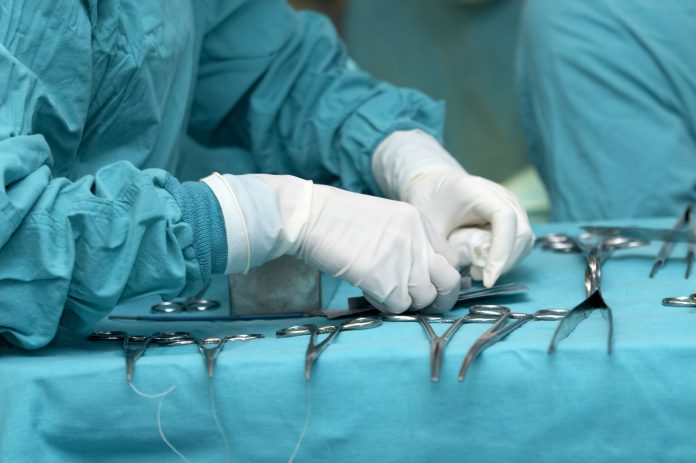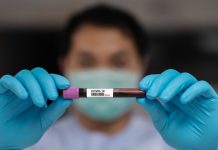The study, published in Anaesthesia, finds that COVID infection increases surgery blood clot risks by 50% – with five times increased risk of death
The University of Birmingham, drawing from the data provided by 15,000 surgeons, found that patients are 50% more likely to have blood clots after surgery – if they were infected with COVID-19.
Co-author Elizabeth Li, General Surgery Registrar at University Hospital Birmingham, commented: “People undergoing surgery are already at higher risk of VTE than the general public, but we discovered that a current or recent SARS-CoV-2 infection was associated with greater risk of postoperative VTE. Surgical patients have risk factors for VTE, including immobility, surgical wounds and systematic inflammation — and the addition of SARS-CoV-2 infection may further increase this risk.”
Firstly, what is VTE?
Venous thromboembolism (VTE) is a condition in which dangerous blood clots form in the veins and has been described as the number one preventable cause of death in hospitalised patients.
With the addition of COVID, surgery blood clot risks overlap with the capacity of the virus, especially during Long COVID, to increase biomarkers for blood clots for long periods of time.
The team found that VTE was independently associated with increasing the risk of death, 30 days after surgery, by 5.4 times. In patients with COVID, VTE was more than five times higher.
“Increased awareness and surveillance” is advisable
However, the authors note that information on prophylaxis regimens for these blood clots in the veins or pre-operative anti-coagulation to prevent them was not available: “Further research is needed to define the optimal protocols for VTE prevention and treatment for surgical patients in the setting of SARS-CoV-2 infection.”
Co-author Mr. Aneel Bhangu, Consultant Colorectal Surgeon from the University of Birmingham, commented: “Increased awareness and surveillance should be considered. At a minimum, we suggest close adherence to routine standard VTE prophylaxis for surgical patients, including the use of anti-clotting medication when bleeding risk is minimal, and increased vigilance and diagnostic testing in patients presenting with signs of VTE, such as swelling in one calf, right sided chest pain and shortness of breath.”
Editor's Recommended Articles
-
Must Read >> COVID-19 can trigger repeating blood clots in arm














